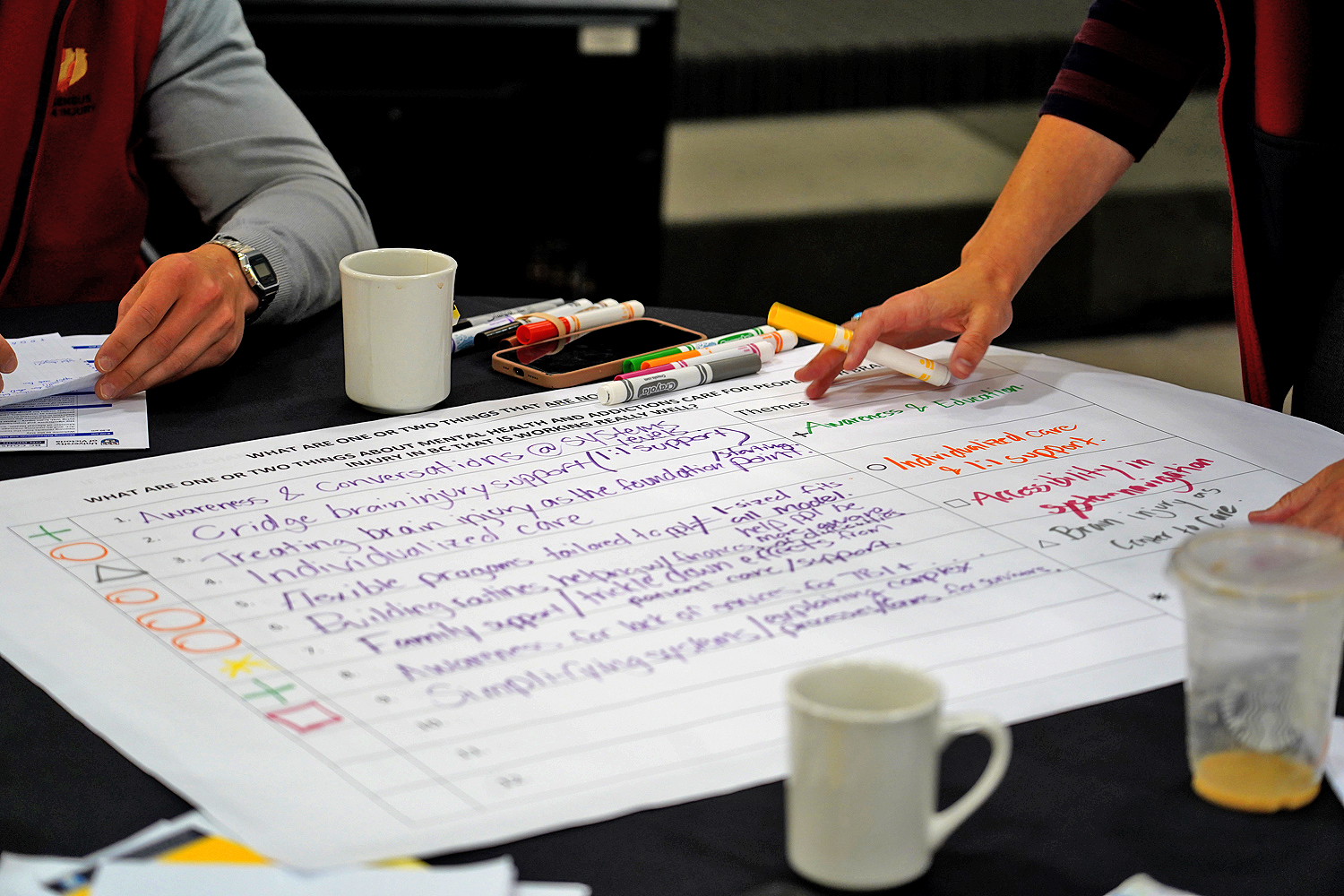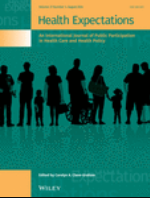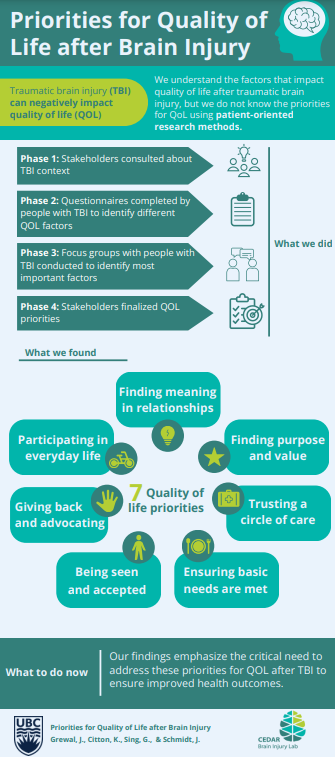Santa’s Helpers Ensure Letters Reach the North Pole
 Tracey Barry and Tina Marsh are on a mission to ensure the postal disruption does not stop children from sending their letters to Santa.
Tracey Barry and Tina Marsh are on a mission to ensure the postal disruption does not stop children from sending their letters to Santa.
The heartwarming story, featured in the Sawatsky Sign-Off segment, highlights a group of dedicated volunteers, including Tina, Tracey, and the individuals they support in the March of Dimes Canada Day Program for brain injury survivors. Together, they embody the true spirit of giving during the holiday season.
These selfless individuals dedicate their time to assembling and delivering holiday cheer and creating a magical season for children. Their efforts demonstrate a profound commitment to community and kindness, ensuring no one feels forgotten during this special time […]
Canadian Charter of Rights for People with Brain Injury
The purpose of this charter is to clearly outline, for people with brain injury, their families, caregivers, and care providers their inherent and unique rights to care and services.
This charter can be used by individuals and families to empower themselves when seeking care, by providers as principles for care, by others to educate the public and by policy makers to advocate for needed, respectful and accessible care and services.
This charter was created from information provided by more than 150 people with brain injury and their family members from across Canada. It is intended to be a ‘living document’ that will evolve as needed.
Your feedback is welcome on ways to use this charter, and any additions or modifications that would be […]
Provincial Strategy for Brain Injury Support and Advocacy Needed Now by Janelle Breese Biagioni
This post is in r esponse to the recent announcement regarding involuntary care under the Mental Health Act. I want to acknowledge the thoughtful work that has gone into developing this important strategy, aimed at supporting individuals with complex mental health and addiction challenges, including those with acquired brain injuries. The goal of creating safer, healthier communities is one that we can all support.
esponse to the recent announcement regarding involuntary care under the Mental Health Act. I want to acknowledge the thoughtful work that has gone into developing this important strategy, aimed at supporting individuals with complex mental health and addiction challenges, including those with acquired brain injuries. The goal of creating safer, healthier communities is one that we can all support.
However, it is crucial that the enforcement of involuntary care be reserved for only the most extreme circumstances. To truly address the challenges faced by individuals with brain injuries and concurrent disorders, we must find a balance between crisis response and preventative […]
Brain Injury After Overdose is a Hidden Epidemic
 Dr. Mauricio Garcia-Barrera (UVic) and Cole Kennedy, PhD Student (UVic) address the ongoing toxic drug crisis as a hidden epidemic: brain injuries resulting from overdoses in this article.
Dr. Mauricio Garcia-Barrera (UVic) and Cole Kennedy, PhD Student (UVic) address the ongoing toxic drug crisis as a hidden epidemic: brain injuries resulting from overdoses in this article.
Survivors of these overdoses often suffer from acquired brain injuries (ABI), leading to long-term cognitive, physical, and emotional challenges. Despite the prevalence, these injuries remain under-recognized and inadequately treated, leaving many without the necessary support and rehabilitation.
These researchers emphasize the urgent need for comprehensive healthcare strategies that address the complex needs of these individuals, highlighting the importance of increased awareness, early intervention, and integrated care to improve outcomes for survivors. Recognizing and treating brain injuries in […]
Ten Priorities for Research Addressing the Intersections of Brain Injury, Mental Health, and Addictions: A Stakeholder-Driven Priority-Setting Study
 Ten Priorities for Research Addressing the Intersections of Brain Injury, Mental Health and Addictions: A Stakeholder‐Driven Priority‐Setting Study
Ten Priorities for Research Addressing the Intersections of Brain Injury, Mental Health and Addictions: A Stakeholder‐Driven Priority‐Setting Study
Kennedy, C.J., Woodin, E., Schmidt, J., Biagioni, J.B., & Garcia-Barrera, M.A. (2024). Ten Priorities for Research Addressing the Intersections of Brain Injury, Mental Health, and Addictions: A Stakeholder-Driven Priority-Setting Study. Health Expectations, 27, e14136.
Researchers from the University of Victoria, the University of British Columbia, and community stakeholders recently published a study on a health research priority-setting process. This process aimed to identify, prioritize, and produce a community-driven list of […]
Priorities for Quality of Life after Traumatic Brain Injury
UBC researchers and community stakeholders have published a paper on the Priorities for Quality of Life After Brain Injury and an informative infographic.
It is known that individuals who have sustained a brain injury may experience changes to their quality of life (QOL). To date there has been limited patient-oriented research to understand the priorities for quality of life following a traumatic brain injury (TBI). This research aimed to explore the priorities using a group consensus building method.
Click the link to access the publication:
Priorities for quality of life after traumatic brain injury
Grewal J, Citton K, Sing G, Biagioni JB, Schmidt J (2024) Priorities for quality of life after […]
Help Move Bill C-277 Forward
Bill C-277 is a l egislative proposal in Canada aimed at creating a national strategy for brain injury awareness, prevention, and care. The bill seeks to address the significant impact of brain injuries on individuals, families, and communities by promoting comprehensive support and resources. It emphasizes the importance of education, prevention measures, and accessible rehabilitation services to improve the quality of life for brain injury survivors.
egislative proposal in Canada aimed at creating a national strategy for brain injury awareness, prevention, and care. The bill seeks to address the significant impact of brain injuries on individuals, families, and communities by promoting comprehensive support and resources. It emphasizes the importance of education, prevention measures, and accessible rehabilitation services to improve the quality of life for brain injury survivors.
By establishing a coordinated approach, Bill C-277 aims to enhance the overall system of care for those affected by brain injuries. This includes raising public awareness about the causes and effects of brain injuries, implementing prevention […]
Neuroplasticity – Springtime for the Brain
 It’s that time of year again. Depending on where you live, the grass is already green, flowers in bloom and the winter nights have faded to spring’s ever lengthening sunsets. Maybe spring is not so evident in the climate where you live. Still looking at mounds of dirty brown snow frozen in the parking lot? I’m constantly checking for that first shy crocus to brave late season flurries and bring a splash of colour to the monochrome landscape.
It’s that time of year again. Depending on where you live, the grass is already green, flowers in bloom and the winter nights have faded to spring’s ever lengthening sunsets. Maybe spring is not so evident in the climate where you live. Still looking at mounds of dirty brown snow frozen in the parking lot? I’m constantly checking for that first shy crocus to brave late season flurries and bring a splash of colour to the monochrome landscape.
There’s a lot of activity afoot underground at this time of year. Few of us can claim to be experts on the science of migration or photosynthesis yet these phenomena bring about […]
The Impact of Brain Injury on One’s Inner Calendar
Forgetting something here and there usually isn’t a problem. It happens to everyone.
Memory loss is often associated with aging. People say things like, “My memory isn’t what it use to be.” But what if you were in your 20s and as a result of a traumatic brain injury, your memory was significantly impacted.
Sheila Willis of Alberta, shares her story of traumatic brain injury and the challenges of her inner calendar shifting as a result. Although she was in her early 20s when she was injured, she did not receive a diagnosis of post-concussive syndrome until her late 40s.
Sheila Willis’ story highlights the challenges faced by individuals […]
Barb Butler Peer Support Group a Lifeline for Many
There are many reasons why Barb Butler is highly respected in the brain injury community. She is a wonderful person and dedicated wife, mother, and grandmother. She is also a survivor of traumatic brain injury.
Barb has become a leader in our community, turning her own tragedy into inspiration, courage, and bringing hope to others. For decades, Barb has infused her wisdom and kindness into the Regina Brain Injury Support Group.
Recently, Barb joined forces with the CGB Centre for Traumatic Life Losses, Brain Injury Canada, Cowichan Brain Injury Society and other associations to raise the profile of brain injury in Canada, and to bring support for Bill C-277 forward.
Bill C-277 calls upon the […]
Between the Lines: Stories of Brain Injury Survivors (Introduction)
Debra’s Journey: Introduction
 Brainstreams is pleased to introduce Debra Erickson, the newest writer in our Between the Lines series committed to sharing the stories of brain injury survivors.
Brainstreams is pleased to introduce Debra Erickson, the newest writer in our Between the Lines series committed to sharing the stories of brain injury survivors.
Debra Erickson was the victim of a hit and run in May 2008 and sustained a traumatic brain injury. Prior to her injury, Debra worked primarily in banking and as a legal assistant. Her TBI changed the course of her life and since then she has been involved in with United Way speaking at fundraising events. Her involvement with Humanitarian efforts has taken her to Africa, Indonesia, and Central America. Teaching English as a Second Language has given her the opportunity to […]
A Silent Struggle Video Series: Stories for Caregivers
 A Silent Struggle Video Series: Stories for Caregivers
A Silent Struggle Video Series: Stories for Caregivers
Brain injuries are not isolated events that have a single impact – their ripples extend beyond the survivor. Some of the under told stories are of the parents, siblings, partners, neighbours, children, and chosen family that rise up to support the survivors through recovery. These caregivers often make big adjustments to their own lives and begin their own journey. Each of these stories are unique beacons of hope and human resilience in the face of overwhelming change.
The BC Brain Injury Association in partnership with Roll.Focus. are honoured to bring you eight unique stories of caregivers, a part of the Stories for Caregivers […]
Call for Abstracts – 11th Annual Concussion Research Symposium
 Canadian Concussion Centre (CCC) – Call for Abstracts
Canadian Concussion Centre (CCC) – Call for Abstracts
The Canadian Concussion Centre at the Toronto Western Hospital is holding its 11th Annual Concussion Research Symposium entitled “Update on Research and Care of the Concussion Spectrum of Disorders” on April 26, 2024. This symposium will be of major interest to the members of the Canadian Society of Medical Evaluators.
This year’s conference will be hybrid and can be attended online by Zoom or in person at the BMO Education & Conference Centre located in the Krembil Discovery Tower, Toronto Western Hospital. The Symposium usually has about 20 research presentations and attracts about 150 attendees.
Who are the speakers?
The keynote speakers include the […]
Invitation to Survivors, Family Members, and Caregivers
Exclusive Invitation to Survivors of Brain Injury, Family Members, and Caregivers
In January 2024, we launch the “125 Days to Say Yes!” campaign. This initiative is a transformative drive designed to catalyze support and swift action towards the realization of the National Strategy on Brain Injury Act (Bill C-277) with the government of Canada. The campaign coincides with the 125 days the House of Commons will be sitting from January to December in 2024.
As we prepare for the campaign, we invite survivors of brain injury, family members, and caregivers to be the driving force behind this movement by sharing their journey. The campaign involves sharing photos and short videos of […]
People With Disabilities Getting Left Behind in Canada’s Housing Crisis
 CBC has reported people with disabilities are getting left behind in Canada’s housing crisis. Why? With an increased demand for housing, along with the rising cost to purchase or rent, folks living with the financial constraints of disability income are getting left behind. We do need to think about housing for individuals with all abilities and remove the barriers to accessing a forever home.
CBC has reported people with disabilities are getting left behind in Canada’s housing crisis. Why? With an increased demand for housing, along with the rising cost to purchase or rent, folks living with the financial constraints of disability income are getting left behind. We do need to think about housing for individuals with all abilities and remove the barriers to accessing a forever home.
Ensure Inclusive Housing for All Abilities in Canada!
Every Canadian deserves a place to call home, regardless of their abilities. Let’s join hands to address the housing needs of individuals with disabilities and create a more inclusive society.
? Accessible Design: It’s time to […]
Moderate to Severe Brain Injury as a Chronic Condition
 Brain Injury Canada issued a statement announcing the momentous collaboration with Canadian Traumatic Brain Injury Research Consortium (CTRC) to produce a position paper calling for the official classification of moderate to severe Traumatic Brain Injury (TBI) as a chronic condition in Canada.
Brain Injury Canada issued a statement announcing the momentous collaboration with Canadian Traumatic Brain Injury Research Consortium (CTRC) to produce a position paper calling for the official classification of moderate to severe Traumatic Brain Injury (TBI) as a chronic condition in Canada.
This announcement represents a significant milestone in the recognition and proposed designation of moderate to severe TBI, an issue that affects Canadians of all ages. The condition primarily arises from motor vehicle collisions among the younger population and falls among the elderly, making it the leading cause of death and disability in children, youth, and adults under the age of 40.
The collaboration […]
First Diagnosed Case of CTE in Female Professional Athlete
 The family of Heather Anderson, Australian rules footballer, donated her brain to the Australian Sports Brain Bank following her death in November 2022. Anderson was 28 years old.
The family of Heather Anderson, Australian rules footballer, donated her brain to the Australian Sports Brain Bank following her death in November 2022. Anderson was 28 years old.
In a paper published on June 30th, outlining the findings of Anderson’s post-mortem analysis declares she is the first female to have Chronic Traumatic Encephalopathy (CTE). CTE is a disorder associated with repetitive head injuries, often related to sports or military activities.
Anderson was diagnosed with one concussion; however, her family suspected she may have had four additional concussions not diagnosed. She also was in the military for nine years and engaged in amateur martial arts for three years – neither of these activities resulted in […]
Researcher Strives to Make TBI Care More Equitable
 Ensuring brain injury services are equitable requires a comprehensive approach that addresses various aspects of access, affordability, awareness, and support.
Ensuring brain injury services are equitable requires a comprehensive approach that addresses various aspects of access, affordability, awareness, and support.
Services must meet the needs of diverse populations affected by brain injury. This means we must develop culturally sensitive outreach programs, support groups, and educational materials to ensure that services are accessible and relevant to individuals from different cultural backgrounds.
A researcher from Toronto is striving to ensure TBI services are equitable. Samira Omar, graduated with a PhD in rehabilitation sciences from the University of Toronto’s Temerty Faculty of Medicine.
Her research lies at the intersection of equity, rehabilitation science and racism — with a focus on rehabilitation care for Black-identifying people with traumatic brain […]
BC Government Proclaims June as Brain Injury Awareness Month
 Brain Injury Awareness Month
Brain Injury Awareness Month
In Canada, Brain Injury Awareness Month is an observance held in June each year, with the aim of raising awareness about brain injuries and their impact on individuals and communities.
The British Columbia government has proclaimed June as Brain Injury Awareness month. The campaign seeks to educate the public about the causes, prevention, treatment, and rehabilitation of brain injuries, as well as to support those affected by them.
Brain injuries can result from various causes, including trauma from accidents, falls, sports-related incidents, and violence. They can also occur due to non-traumatic causes such as strokes, brain tumours, infections, and certain medical conditions. The numbers of brain injuries occurring in […]





